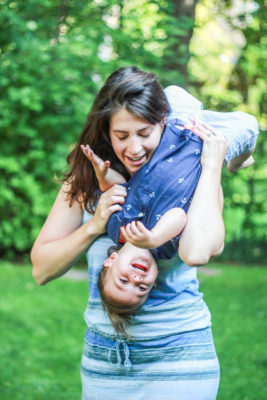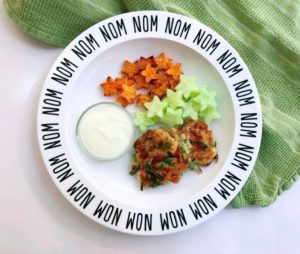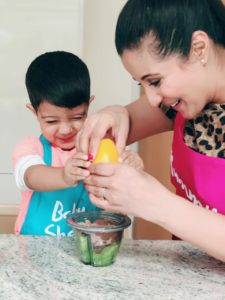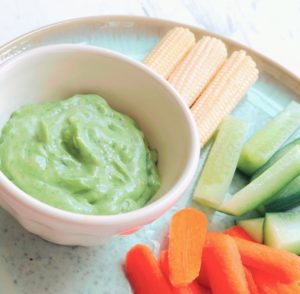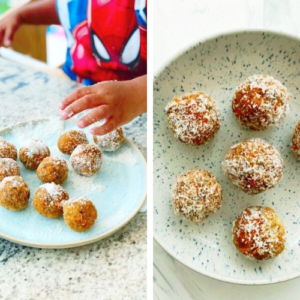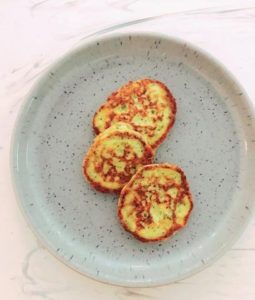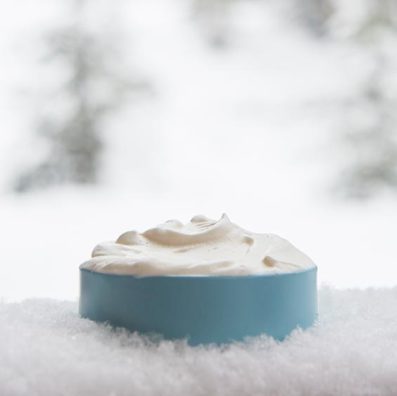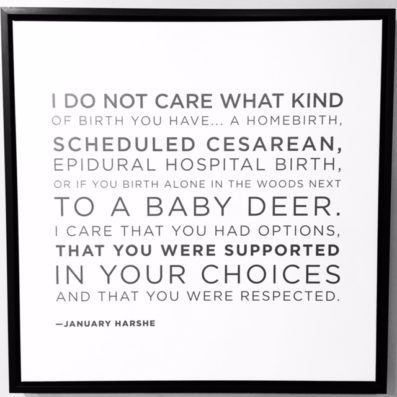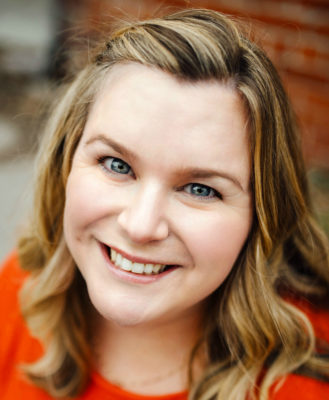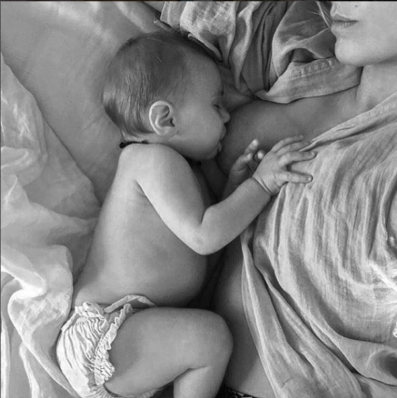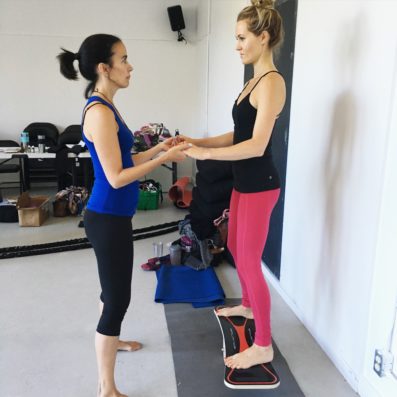The news about the baby not having a heartbeat at the ultrasound clinic wasn’t a surprise. I had known something was wrong for a few weeks in my core.
I knew, as friends would tell me how good I looked, and I kept thinking, at 4 months pregnant I shouldn’t look this good. My belly should be bigger. When every woman recalled how big they got with their third child I just kept thinking, what’s wrong with me? My husband and I would justify it. I was way more active in this pregnancy biking to work, doing Pilates twice a week. But, something still didn’t seem right.
When, at our 16-week appointment with my midwife we couldn’t get a clear sound of the baby’s heartbeat, we justified it. The placenta is in the front and muffling the sound. Leaving without hearing that quick beat left me feeling unsettled. And unsettled I felt until the morning of my 20-week ultrasound.
Maybe all the justifications were right and things were okay. So we went as planned, brought my two boys to the clinic so they could help see if the baby was a boy or a girl. I felt relief as the technician proceeded with the ultra sound. I figured the longer she did her thing, the greater chance everything was fine. She left and said she was going to get my husband. I assumed she wanted to bring him in for the fun part. But when the technician came back she was alone. She handed me the phone awkwardly and said my midwife needed to talk to me. And then I really knew.
My husband came in with the kids. As my midwife spoke to me through the phone, I repeated the words she said to me by mouthing then to my husband so my kids wouldn’t hear. “The baby has no heartbeat. There was a complication. Something about the brain. It hasn’t grown in weeks.”
I hung up the phone and had to explain to my kids why they wouldn’t be seeing their little brother or sister today. I wanted to just shut down and walk out of there and mark it as one of the worst days of my life. But then I looked at my little 5 year old and his tearful eyes as he asked in his sweet innocent voice “Why? What’s wrong?”
So I got out of my own head, bent down and looked him in the eye and said. “Charlie, we aren’t going to see the baby today. Growing a baby is really hard and lots of things can happen while the baby is growing and sometimes things go wrong and the baby dies.” His eyes opened wide and he said almost in a whisper “the baby is dead?” “Yes” I nodded and gave him a big hug. My 3 year old was thankfully pretty oblivious to the situation couldn’t really grasp what was happening.
My 5 year old was not done yet and burst out “but that’s not fair. I wanted a sister!” Holding back my desire to shout with him, in a calm slow voice I said “I did too, but if the baby was so sick, we wouldn’t have wanted him or her to be born sick and she or he wasn’t strong enough to make it into this world.”
At that moment I realized that having to explain this to my son was the most therapeutic thing I could have done. It forced me to think about the situation in rational and simple terms. It is sad. We don’t want this to happen. But, this is what nature intended and it wasn’t meant to be this time
“We are so lucky that you and Jack are strong and healthy boys. You may still get a sister but she needs to be healthy and strong enough to get big enough to grow. And this time it didn’t happen.”
I then said to Charlie “we are so lucky that you and Jack are strong and healthy boys. You may still get a sister but she needs to be healthy and strong enough to get big enough to grow. And this time it didn’t happen.”
And then we left the clinic. Distraught, confused, drained and disappointed.
We drove up to Charlie’s school. Despite the news, we thought, being in his routine would be best. Quickly pulling aside the teacher I let her know what had happened so that she could be considerate of his emotions that day and keep me in the loop.
And then the reality sunk in that I have to tell everyone. I was coming up on 20 weeks. Everyone knew and asked me about the pregnancy. This was going to be horrible having to tell all these people who have shared in my excitement for the past few weeks. I ran out of the schoolyard and hid in the car. I did not want to see anyone else that morning. I needed to process this on my own.
I sent my family a few texts and said I didn’t want to talk. One family member who had gone through this said that he’d really like to talk if I was up for it. I called him immediately. Speaking to someone who knew what I was feeling was comforting, and helped me get clarity around the ‘what happens next’. He said “there are no words that help in this situation” and he couldn’t be more right.
A few hours later we spoke to the midwife and made a plan. I was going to have a D&C next week. “Could anything be done sooner before the weekend?” The following week was the earliest.
Jon and I decided to go on our pre-planned trip to New York. It was my birthday present that had been booked since August. We figured why be sad in Toronto when we can be distracted in one of my favourite cities.
In the back of my mind there was a constant worry I would go into labour and have to rush home. Every cramp, every time I went to the bathroom, I was nervous as to be in a situation that I didn’t want to be in. But we made it through the weekend slowly, carefully and being kind to ourselves.
New York turned out to be the perfect way to pass the weekend. We managed to find distraction in the bustle of the city and find an inner calm against the backdrop of the noise. We were able to feel some of the most intense emotions we have ever felt and talk about it. I wasn’t yet overwhelmed by sadness. I wasn’t grossed out by the dead baby still inside of me. It gave me more time to get ready to say goodbye in a way. Indulging at delicious restaurants, visiting ‘our’ spots, seeing a few friends. Mostly though, we kept to ourselves. It felt as though we were in negative time, just passing moments until day 0 when we would actually get to deal with the situation and not just let time pass over us.
During this time, many people have said some incredible things to help me mourn, understand and stay appreciative and grateful. Jon said “To feel joy, you must experience sadness.”
My life is filled with moments of joy. Just saying the word conjures images of the most incredible moments and memories. And yet, now, there are also stabbing impulses of pure sadness that make me feel there is no light in this world. To feel joy, you must experience sadness. I will continue to remember the moments of joy while honouring the moments of sadness and the role they play in life.
Time to face reality.
Hospitals have a way of turning everything emotional into a scientific process. It was the Monday after we returned from New York. Here were the facts. Here’s what we needed to know. What to do, what not to do, and when to show up. We went home to more waiting, and a lot of anxiety. I gave my kids extra long snuggles that night and never wanted to let them go.
Tuesday morning we got up quicker than usual. We both just wanted this to be over. The doctor asked if I had any questions. Of course I did. I was paralyzed. I couldn’t think of any. Another woman was waiting for the same thing. We smiled in compassion. I said “it looks like we are both here for one of the worst days of our lives”.
More waiting. Another visit from the surgery team, this time with my husband. I wanted to know more about the recovery process and what to expect. Could I have other children? It felt wrong asking that question. Selfish almost. I still had a dead child inside me and I was thinking about my next. I have two amazing kids at home why do I feel the need to have more?
Surgical rooms are nothing short of chaos. Everyone has their role, but to the quiet patient, it’s a whirlwind. I’m hooked up to monitors, and IV. A few deep breaths and then I was out …
My eyes slowly opened. I looked around, I was in recovery. It was over and suddenly I was swept with emotion. It was real. I would never hold this child. I was empty. The baby I was once growing inside me was gone as was the excitement and anticipation of meeting this child.
It feels strange to mourn someone I’ve never met.
After the surgery, it’s time for the healing process to begin. It’s unknown territory. I know the devastation and overwhelming sadness that comes when someone you love dies. I know the feelings of mourning and talking about memories of the person. How they made you feel, different moments in time that you had together. But, this child never came to be. So how do I mourn? What do I remember? And where is this heavy sadness coming from?
There are two parts of this healing process, physical and emotional. The physical part is easy. But the emotional side is hidden, secretive, and if you don’t seek support on your own, you are left alone and in isolation. I reached out. I wrote to my friends and family, telling them what happened and tried to express my feelings, and letting them know that while I appreciated their support I wasn’t ready to talk about it.
Time does make it easier, but the pain remains. It hibernates. It latches on to a feeling or a thought and grows. I had a flashing thought that I failed at being a mother because my body couldn’t grow a child like it was supposed to. My sadness hung to that feeling for a while, but then let it go. It wasn’t true. My body did what it was supposed to do by not letting a sick child continue to grow.
I’m doing okay until a mom at my kids swim class is chatting with me and pulls a hair off my shoulder and says “sorry, you are shedding, but how is that possible, you are pregnant?” I couldn’t even speak, tears came and I said in the loudest voice I could muster, barely a whisper “not anymore”.
Women are superheroes in disguise.
Throughout this journey, some incredible people have shown up in ways that have been loving, supportive and wise. Especially women. And, so, so many had a similar story to share. They know the pain that I feel. They comfort me. These women are strong, compassionate and have moved forward with their lives. I know I will too.
The pain doesn’t end. I felt an incredible feeling of isolation and loneliness. I’m thankful to the amazing women who continued to be in touch in gentle ways, and understood I didn’t want to talk. I was about to embark on a journey of adding to my family, and now that’s gone, so please show me your love and that you are there for me over and over.
There has been unconditional love without any expectations. People who dropped off food and left, met me and didn’t comment, didn’t push. Those who understood that I didn’t want to talk about nonsense, but didn’t want to belabour over my sadness, so we climbed up slides to the happy squeals of my son, gave me nanny advice and called doctors for me when I couldn’t. Notes saying, “no need to write back, but sending my love”. All of this made me feel that I had a community of people but I didn’t feel burdened or guilty by not responding.
This overwhelming feeling of gratitude for all that I have in my life has helped me through this time. I am thankful to those who built me up, reminding me that I am a strong woman and a wonderful mother. I needed to hear that. I am grateful for the trip to New York with my husband, and how it allowed us to grow closer together. We so often forget about the father, and this gave us time to explore our emotions and support one another. I am grateful for my son’s teacher who gave him extra kindness on that morning. I am even grateful for losing my voice as a side effect of the anesthesia. It forced me to choose my words carefully, calm down, and let others around me do things their way. And most of all, I am incredibly grateful for my two children whose innocence, big eyes, strong hugs, soft kisses, and boisterous laughter remind me of the joys in life.
There are still incredibly dark moments, especially in the middle of the night, when you wake up and the house is silent and the only thing moving is your mind and your thoughts at warp speed. These are the times of loneliness and pain that are hard to escape.
So hold onto the moments of joy and let them lift your sadness.
